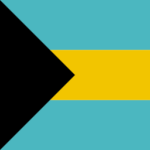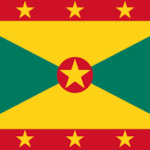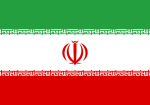Fees for registering Saint Martin trademarks
Service Process
Trademark registration time
Saint Martin is an autonomous country in the Netherlands, originally part of the Dutch Antilles in the Caribbean Sea. The current trademark regulations are the National Trademark Regulations issued on December 16, 1996. The Intellectual Property Office of Saint Martin is responsible for managing trademark affairs and the official language is Dutch. Trademark exclusive rights need to be obtained through registration. Trademark registration is not mandatory, but in order to protect the trademark or renew it, it must be registered in accordance with the law. The trademark registration of Saint Martin adopts the principle of "application first".
Saint Martin has joined the Madrid Protocol, so trademark registration can be handled through "single country registration" or "Madrid International Registration".
Trademark Registration Process
At present, the Saint Martin Trademark Office adopts the Nice Classification 11th edition of goods and services descriptions and accepts applications for multiple categories in one table. The elements that constitute a registered trademark for Saint Martin include: text, name, graphics, three-dimensional logo, color, slogan, commercial appearance/decoration, etc.
If the applicant does not reside in Saint Martin, they must entrust a specialized agent in their home country to handle the matter. The basic materials required for trademark application are:
1. Trademark design;
2. Specific categories and product/service items;
3. Name and address of the applicant;
4. Power of attorney;
5.If priority is declared, proof of priority must be provided.
The main process for applying for registration of the Saint Martin trademark is: application acceptance examination announcement approval issuance. After the application is submitted, the examiner will conduct a formal and substantive examination of the application. Formal review mainly examines whether the application requirements and classification information comply with regulations; The substantive examination includes the examination of the distinctiveness of the trademark, whether it violates the prohibition and prohibition clauses, and whether it conflicts with the prior trademark. After the review is approved, an announcement will be arranged, and one month from the announcement date is the objection period. Any interested party or prior rights holder may raise objections, and the main reasons for raising objections are:
1. Conflict with prior trademarks, such as owning a prior registered trademark;
2. The trademark lacks distinctiveness;
3. The trademark has adverse effects;
4. Malicious registration;
5. Conflict with other prior rights, such as trade name rights, design rights, copyrights, personal names, etc;
6. The slogan trademark lacks originality.
If there are no objections or objections are not valid during the announcement period, the registration can be approved and a registration certificate can be issued; If the review fails, a rejection notice will be issued and the applicant will be required to respond within the time limit specified in the rejection notice. If everything goes smoothly, it will take 1-2 months to register the Saint Martin trademark; If things don't go smoothly and there are objections or rejections along the way, the time will be greatly extended, possibly taking about 6 months.
Trademark registration materials
The Saint Martin trademark is valid for 10 years after registration, starting from the date of application; Renewal can be processed within 3 months before the expiration date, with a grace period of 6 months; The renewal is valid for 10 years.
Start Your Trademark Business
Start Registration

do not understand? Contact us

do not understand? Contact us

do not understand? Contact us

do not understand? Contact us


 Saint Martin
Saint Martin